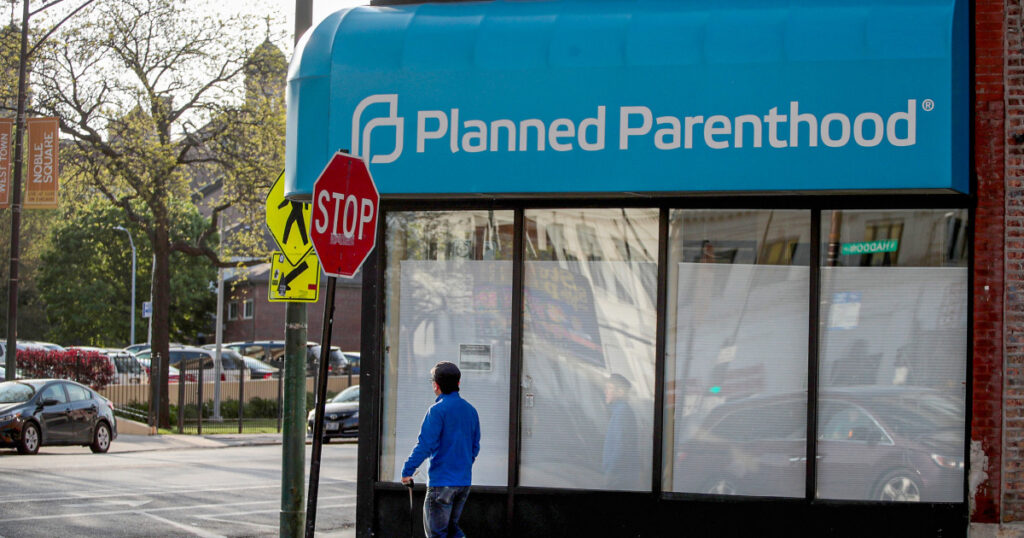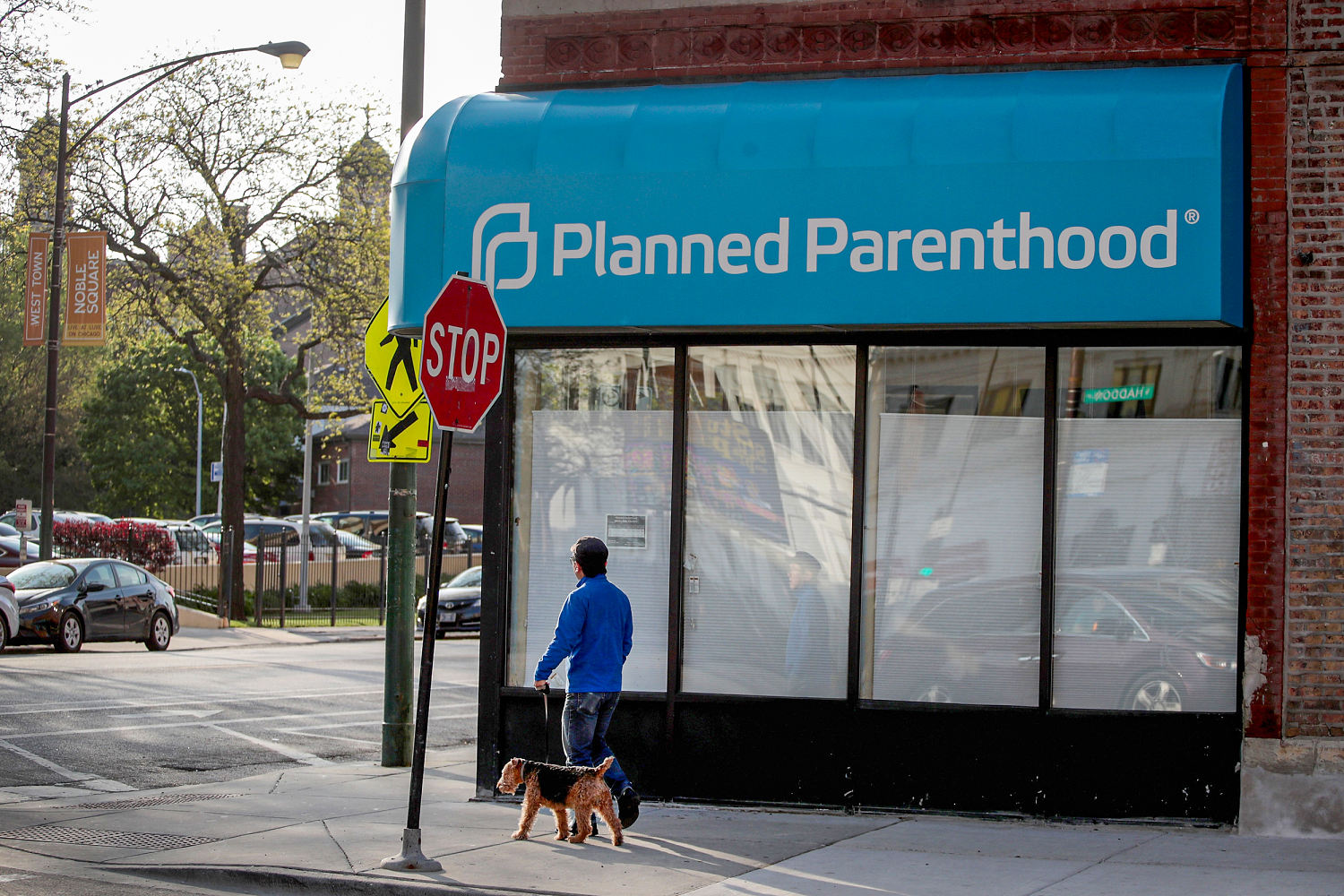

When the Trump administration suddenly froze federal funding to more than 100 Planned Parenthood clinics this spring, the organization’s Michigan branch was already deep into hard discussions about its finances.
“The leadership team and our board had been scenario planning for months to try to fill those gaps to see how we could continue providing care,” said Ashlea Phenicie, chief external affairs officer of Planned Parenthood of Michigan.
The only option was clear. Michigan’s 14 Planned Parenthood clinics serve tens of thousands of women. In order to save clinics around the state that were either busier or in places where women had few other options, the team would have to close multiple clinics, including the only one in the state’s Upper Peninsula, a large, isolated and mostly rural area surrounded by a stretch of Lake Michigan. In Ann Arbor, home of Michigan State University, the city’s two clinics would be combined.
It’s a reality playing out across the country.
At least 20 Planned Parenthood clinics have closed or will close within the year. For decades, the health care organization has been squeezed by the same pressures choking nearly all U.S. providers –– low insurance reimbursement rates, blocked Medicaid expansion, understaffing and rising costs of providing medical care that have forced hospitals and health clinic closures throughout the country.
Uniquely, Planned Parenthood, a nonprofit that serves more than 2 million patients nationwide every year, many of them uninsured, underinsured or who qualify for Medicaid, has also become the target of pointed funding cuts that started under the first Trump administration.
“What is different this time around is that it’s much more sweeping. It’s a deeper and broader cut that will affect both more clinics and more people,” said Farzana Kapadia, a professor of epidemiology and population health at the New York University School of Global Public Health.
In March, the Trump administration withheld funding by excluding many Planned Parenthood clinics from the Title X family planning program, a federal grant program that funds family planning and reproductive health care. Then, in late May, House Republicans delivered another enormous blow, voting to end funding for Planned Parenthood as part of the reconciliation bill.
Federal law already restricts federal funds from being used for abortion, except in cases of incest, rape or if a mother’s life is in danger, through a law called the Hyde Amendment.
But if passed, the reconciliation bill would cut off Medicaid reimbursement to any nonprofit that primarily offers family planning or reproductive health services, provides abortions beyond the Hyde Amendment exceptions and received more than $1 million in Medicaid reimbursements in 2024. As a nationwide organization, Planned Parenthood does all three.
If the bill passes in the Senate, it would block Planned Parenthood clinics from billing Medicaid for any health services at all, including cancer screenings, wellness exams and birth control. It’s unclear if the new legislation would apply to Planned Parenthood nationally or on a state-by-state basis.
Over half of Planned Parenthood patients are covered by publicly funded health programs like Medicaid and in 2023, about 36% of all Title X services were provided by Planned Parenthood clinics. Eliminating these sources of funding would cut hundreds of millions of dollars from Planned Parenthood’s care costs every year. Targeting federal funding for any type of care for Planned Parenthood clinics is a way opponents of abortion rights can attempt to shut down clinics that do provide abortion, even if they also offer other care.
Phenicie said Republican lawmakers appear to understand that cutting off Planned Parenthood from Title X and Medicaid reimbursement will put the clinics that perform abortion in peril, even if these funds can’t cover the procedures. The slashed funds could affect all Planned Parenthood clinics whether they offer abortion services or not.
“They know so much of our patient base is on Medicaid or needs Title X to pay for their care, they know that cutting this off will allow them to cut off access to abortion and they are willing to make that trade,” she said.
Before the cuts, Planned Parenthood was already operating on thin margins. Now, clinics are struggling to operate at a loss.
“The numbers are so devastating that there are really no options other than closing some centers and consolidating others, and then investing in our virtual health centers that can serve people across the state,” Phenicie said.
Clinics provide basic health care
At least 1 in 3 women say they have gone to a Planned Parenthood clinic for care, as well as 1 in 10 men, according to a recent KFF Health poll. Nearly half of Black women have gone to a Planned Parenthood clinic, the poll found.
Abortions, the main reason the Trump administration has ended support for the clinics, account for just 4% of the services Planned Parenthood provides, according to a 2024 annual report.
The vast majority of Planned Parenthood’s services involve basic health care for women, including diagnosing and treating urinary tract and yeast infections and screening for cervical cancer and breast cancer. Some locations offer vaccination against HPV, hepatitis B, Covid and influenza.
More than half of care is related to testing for sexually transmitted infections and treatment. Another 25% is providing access to contraception, often at low or no cost. Cancer screenings and other non-abortion services make up 18%, the report showed.
Those important medical services haven’t swayed opponents of the clinics.
In January, Sen. Rand Paul, R-Ky., introduced a bill that sought to ban Planned Parenthood from federal funding in the same ways the federal reconciliation bill would. The bill is called the Defund Planned Parenthood Act.
“My commitment to protecting life isn’t just personal, it’s rooted in both science and principle. Life begins at conception, and I’ve spent my time in the Senate fighting to protect the right to life,” Paul said in a press release.
Closing in states that support abortion rights
About 40% of Planned Parenthood’s funding comes from government health care reimbursements and grants. Many locations offer a sliding scale payment option for people who can’t afford health care. That money comes, in part, from government programs that are now being cut.
“Cutting this funding is really about cutting access to care for people who are not insured or who are underinsured to allow for tax breaks for people who can afford their medical care,” NYU’s Kapadia said.
Wendy Stark, president and CEO of Planned Parenthood of Greater New York, said that even when a patient has private insurance, “the reimbursement rates are just not meeting the costs of primary care.
“The U.S. health care system pays a tiny amount of health care dollars into primary and preventative care,” Stark said. “We are sitting in a micro version of that.”
Earlier this year, Planned Parenthood announced it was selling the building that housed its only Manhattan location. Planned Parenthood locations are also shuttering throughout the Midwest and in other states that have historically voted in favor of abortion rights, including Vermont.
In late May, Planned Parenthood announced it will close four clinics in Minnesota within a year. The state was the first to codify the right to abortion into law after the Dobbs decision overturned Roe v. Wade, but only one of the closing clinics performed abortions.
Four of the six Planned Parenthood clinics in Iowa, including one in Ames, where Iowa State University is located, will also be shuttered. Four Illinois clinics, none which performed abortions, stopped operating in March. In April, three locations closed and two were consolidated in Michigan, where the right to abortion is enshrined into state law. Two Utah locations closed in May after losing a significant amount of funding as a result of the Title X freeze.
“We are subsidizing almost every visit we do, even with insurance,” Stark said. “We also have a great deal of our patients who come who do not have insurance.”
The decision to sell the Manhattan clinic was a strategic but difficult decision, she said. The revenue from the sale could help keep other clinics in the state operating. Both the patients and staff of the Manhattan clinic can be absorbed by Planned Parenthood’s other New York City locations, which can minimize the impact the closure will have.
“When we consolidate in certain locations, we look at the whole area. Can we funnel patients to our next closest health center, are there other clinics that patients can be sent to?” Stark said, adding that this is more difficult to do in rural areas that already have extremely minimal health care options.
“If we face further erosion of our finances, we will have to make more hard decisions,” she said.
Straining a fragile health care system
Several state-level laws banned Planned Parenthood from receiving Title X funds in the decade preceding the sweeping federal exclusions.
Robin Marty, the executive director of WAWC Healthcare, formerly West Alabama Women’s Center, in Tuscaloosa, said these states can provide a picture of what health care may look like in states that have more recently faced Planned Parenthood closures.
“We exist as kind of a lesson to people of what resources are like if there is not a Planned Parenthood,” she said.
Planned Parenthood operates just one brick-and-mortar clinic in Alabama, in Birmingham, but offers telehealth throughout the state. There are just two in Louisiana and one in the Florida Panhandle.
There are no physical clinics in Mississippi, which has the highest teen birth rate in the nation. Alabama and Louisiana rank in the top seven, according to Centers for Disease Control and Prevention data. Mississippi also has the highest maternal mortality rate. Louisiana comes in second. Alabama is fourth.
“There aren’t places for people to go for free birth control or STI screenings or maternal care,” she said, referring to sexually transmitted infections.
WAWC Healthcare is one of the only providers in Alabama, outside of federally qualified health centers, which are run by states or counties, that does. Already, Marty said, the clinic relies heavily on nongovernmental grants in the absence of access to Title X, though the clinic does accept Medicaid.
“Every time I apply for a grant, I know I have only about a 10% chance of getting it, but I do it anyway because that’s the only way my patients can get care,” she said. Other than grants, “we rely on donors who each donate about $50 each time we contact them.”
Marty said other clinics that provide some of the same services as Planned Parenthood, which are already operating on razor-thin margins, if not at a loss, will be further strained by closures. This strain will be passed onto patients.
“You are talking about individuals who are living at or below the poverty level who already can’t afford health care on their own and then you are eliminating a major source of their health care,” Kapadia said.
The GOP megabill, which blocks Planned Parenthood from being reimbursed with Medicaid dollars, among other Medicaid cuts, is awaiting its fate in the Senate this week. For now, Title X funding is frozen for Planned Parenthoods in 20 states.
If the “Big Beautiful Bill” passes, another 200 of the roughly 600 Planned Parenthoods will be in danger, according to Planned Parenthood.
When Title X funding was cut off to Michigan Planned Parenthood between 2019 and 2021, the number of people seeking preventative care at its locations dropped 75%, Phenicie said.
Although there are other health centers that can pay for visits using Title X funds, they could not absorb the patients Planned Parenthood could no longer see, she added.
In the month leading up to this year’s closures, Planned Parenthood Michigan kept the four closing clinics open to honor all the appointments that had already been made, and spent hours trying to help patients line up care at other clinics or through telehealth with Planned Parenthood.
“Even if they would like to continue care, if they can’t be covered under Title X and they can’t use Medicaid, their options will be limited,” Phenicie said.
 Latest World Breaking News Online News Portal
Latest World Breaking News Online News Portal






